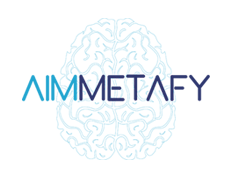In today’s healthcare landscape, data analytics plays a crucial role in creating tailored care plans for individuals with dementia. This blog explores the various ways data is utilized to enhance care, ensuring that each person’s unique needs are met effectively. Let’s dive in!
Understanding Data Analytics in Healthcare
Data analytics involves the systematic analysis of data to make informed decisions. In healthcare, this means using patient data to identify trends and improve care delivery.
Essentially, it’s about transforming raw data into actionable insights. For dementia care, this process can pinpoint effective strategies for managing symptoms and enhancing patient safety.
The use of data analytics doesn’t only streamline operations; it also paves the way for a more personalized approach. By analyzing various factors, healthcare providers can adapt their methods to align with individual patient needs.
Moreover, these insights are crucial for understanding how to allocate resources efficiently, ensuring that each patient receives the attention they deserve in their care journey.
Collecting Relevant Patient Data
Gathering data such as medical history, cognitive assessments, and daily living activities is essential for building an accurate profile of a patient with dementia.
This data collection extends beyond just clinical records. Observational reports from caregivers and family members provide invaluable context that shapes a more complete view of the patient’s life.
Equally important is the incorporation of social determinants of health, like living conditions and social interaction levels, which greatly affect the well-being of individuals with dementia. Gathering this holistic data is vital.
Assembling this multidimensional data creates a foundation for personalized care. The more insights providers have, the better tailored their care plans can be. This thorough approach ensures that no aspect of a patient’s experience is overlooked.
Analyzing Patterns and Trends
Using advanced analytical tools, caregivers can identify specific patterns in behavior, mood, and cognitive function that can inform care strategies.
For example, data analysis can reveal trends in how a patient interacts with their environment at different times of the day. Understanding these rhythms allows caregivers to optimize engagement strategies, potentially reducing agitation or confusion.
Furthermore, tracking changes over time creates a clearer picture of disease progression. By recognizing early signs of deterioration, interventions can be implemented sooner, which is crucial for maintaining quality of life.
This analytical approach also empowers families, as they receive updates and insights into their loved one’s condition, promoting stronger collaboration with healthcare providers.
Creating Custom Care Plans
Data insights allow for the development of personalized care plans that address the unique strengths and challenges faced by each individual with dementia.
When care plans are customized, they resonate more with patients. Consider how someone who enjoys music can thrive with a plan that integrates musical therapy, enhancing their daily experience.
This level of personalization not only improves adherence to care plans but also fosters a sense of agency among patients, as they see their preferences and personalities reflected in their daily routines.
Ultimately, tailored care plans can lead to better health outcomes. By aligning treatment with individual preferences and abilities, it becomes easier to mitigate symptoms and enhance quality of life.
Monitoring Progress and Adjusting Plans
Ongoing data collection and analysis facilitate regular monitoring of a patient’s progress, making it easier to adapt care plans as needed to optimize outcomes.
Frequent assessment of both qualitative and quantitative data helps ensure that care remains aligned with the patient’s evolving needs. Regular check-ins foster an adaptive approach rather than a static one.
For instance, if a patient’s engagement in social activities declines, this can be quickly identified and addressed, potentially preventing isolation and depression.
Adjustment is key—no plan is perfect from the start. Care teams that continuously analyze and adapt strategies are positioned to deliver the best possible support to individuals living with dementia.
Recap of Personalized Dementia Care Plans Through Data Analytics
By leveraging data analytics, healthcare providers can design personalized dementia care plans that truly cater to individual needs. This approach not only improves the quality of care but also enhances the overall well-being of patients and their families.





